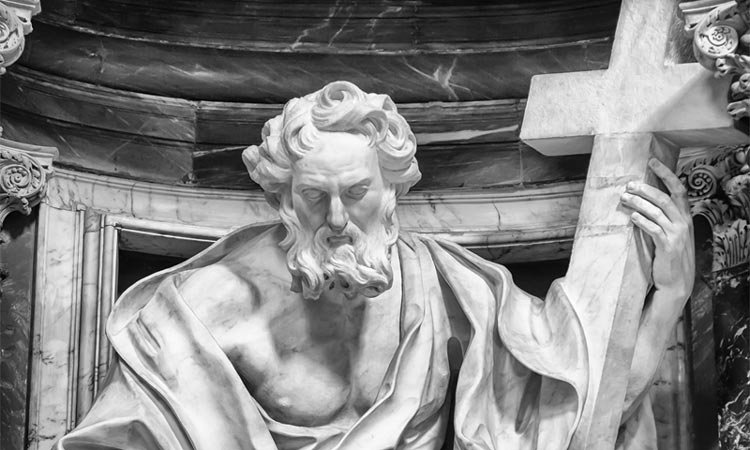One thing that seems to be unique to the Bible is how the “heroes of faith”—with the exception of Jesus, of course—were far from perfect men and women. As the saying goes, they were portrayed “warts and all.” I love history, and if you read a lot of ancient histories or literature, you get used to heroes being lionized. Their faults, if they had any, seem to have been redacted. But not so with the heroes of the Bible. Personally, I think the warts-and-all approach gives so much more credibility to the Bible.
I get particular encouragement from reading about Jesus’ closest disciples while He was on earth.[See Mark 3:13–19.] Let’s start with Peter. Traditionally regarded as the chief of the apostles, Peter has the dubious distinction of having denied that he even knew Jesus on the very night that He needed him most. And not just once but three times. “But he began to curse and swear, ‘I do not know this man you are talking about!’”[Mark 14:71 NASB] Cursing and swearing too? That doesn’t sound very saintly.
John called himself in his Gospel “the disciple Jesus loved,”[John 21:20] but Matthew records an incident that doesn’t put John and his brother, James, in a very good light: “Then the mother of the sons of Zebedee came up to [Jesus] with her sons, and kneeling before him she asked him for something. And he said to her, ‘What do you want?’ She said to him, ‘Say that these two sons of mine are to sit, one at your right hand and one at your left, in your kingdom.’ Jesus answered, ‘You do not know what you are asking. Are you able to drink the cup that I am to drink?’ They said to him, ‘We are able.’ He said to them, ‘You will drink my cup, but to sit at my right hand and at my left is not mine to grant, but it is for those for whom it has been prepared by my Father.’ And when the ten heard it, they were indignant at the two brothers.”[Matthew 20:20–24 ESV]
This wasn’t even the first time the disciples had argued about who would be at the top of the heap. “And they came to Capernaum. And when [Jesus] was in the house he asked them, ‘What were you discussing on the way?’ But they kept silent, for on the way they had argued with one another about who was the greatest.”[Mark 9:33–34 ESV]
And then there was Matthew the publican. Publicans were tax collectors and were universally regarded as scoundrels. The Romans had installed the publican system as a way to raise taxes from conquered territories. They auctioned off the tax rights of a region to the highest bidder, who then promised to turn in that amount of money to the imperial treasury on an annual basis. In reality, these tax farmers were free to collect however much they could and keep the surplus for themselves. They could essentially decide on a whim how much they wanted as taxes. It was a ruthless and thoroughly unfair system that ground the poor into poverty. Some of the biggest names in Rome, such as Brutus and Cassius, co-conspirators in the plot to murder Caesar, were reportedly owners of such companies—although they ran them through third parties, because technically, Romans were not allowed to engage in such a sordid business.
So Matthew was part of this racket, probably working as a subcontractor. He even seems to have had a choice spot at one of the city’s gates where he could collect duties on all goods going in and out. To pious Jews, his financial dealings with Gentiles even rendered him ritually impure. Not an upstanding member of Jewish society by any stretch of the imagination.
And the rest of the disciples? Andrew, Thaddeus, Philip, and Nathaniel (aka Bartholomew) barely show up in the four gospels, but we do know that another—Simon—was formerly a member of the zealot party of violent revolutionaries pledged to overthrow the Roman occupiers and their puppet rulers. And of course, Thomas’ claim to fame is that he doubted Jesus’ resurrection. Not to mention Mary Magdalene, who is reputed to have been a prostitute before Jesus cast seven devils out of her[See Luke 8:2.]—yet she was the one to whom He first appeared after His resurrection.
And what about the hero of the book of Acts? Paul was a converted Pharisee who, in his own words, had previously “persecuted the church of God beyond measure and tried to destroy it.”[Galatians 1:13]
But these disciples—ordinary people made extraordinary by their faith and loyalty to Jesus—are some of my heroes and heroines. They are an inspiration to me, because despite their human weaknesses and lacks, they were faithful to God’s calling and did wonderful things for God and their fellow men.
